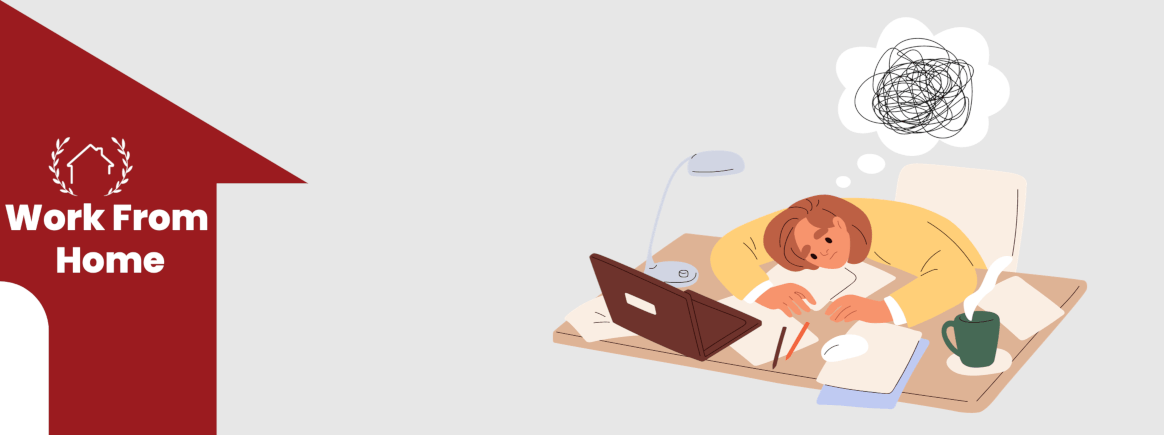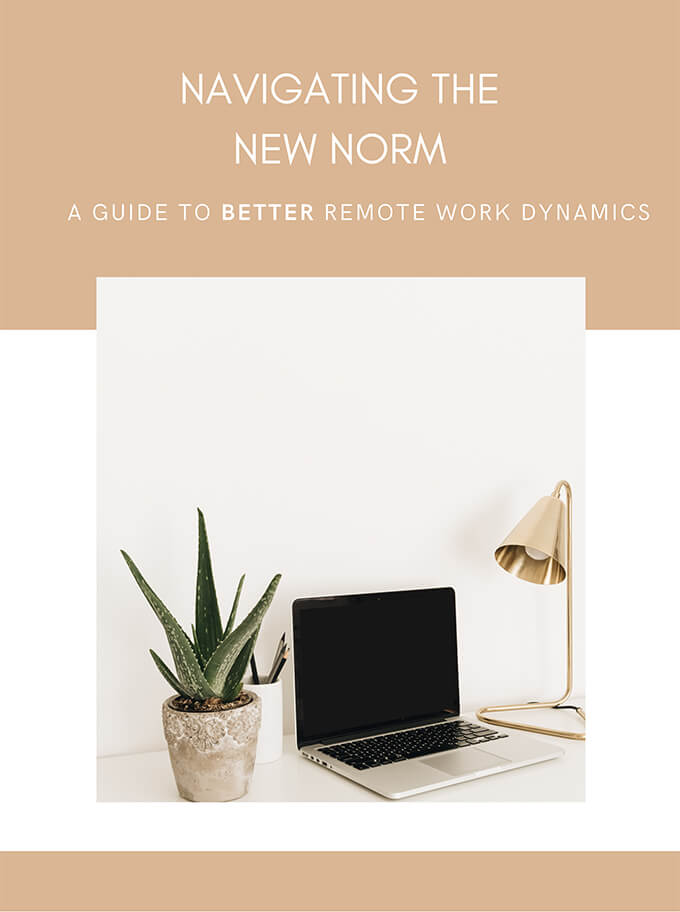
Staying Mentally Well: A Work from Home Challenge
Embracing the concept of remote work is a strong and passionate advocacy of the new generations. The flexibility inherent in a work-from-home or hybrid work model is unparalleled, offering a crucial element that a strict in-office arrangement often lacks: balance. Nonetheless, this newfound balance can sometimes exact a toll on mental health as individuals adapt to shifts in their work routines and social interactions. Reduced face-to-face interactions and, one could argue, an abundance of potential distractions are some of the challenges that arise. In this blog, we explore the intersection of hybrid work and mental health. In line this mast mental health month (November) we will also present strategies to help individuals stay connected and maintain their well-being.
Work from Home's Impact on Mental Health
Since the famously instituted eight-hour-a-day, five-day workweek, employees have been chained to their desk for ⅓ of their day. Until the pandemic sparked a new interest in working from home. But just like everything else, it presents a host of challenges that individuals and organizations must navigate.
Remote work can result in a sense of isolation and loneliness, particularly for employees who are accustomed to daily social interactions in a traditional office setting. It has significantly altered workplace culture. In an office, employees have the freedom to spontaneously drop by a colleague's desk to discuss projects and naturally engage with others as they go about their workday. Being physically present in the office facilitates the formation of bonds and the development of relationships, which can be challenging to replicate when working remotely. Consequently, this can lead to a feeling of isolation and a reduced sense of familiarity with one's colleagues when significantly reduced.
As individuals navigate the complexities of working from home, it becomes essential to strike a balance. Remote work gives flexibility to balance their personal and professional lives, but it also blurs the boundary between the two. According to psychological principles, it's recommended to use your bed exclusively for sleep. This action creates a clear mental association between your best and restful activities. Similarly, it's preferable to link your home environment with relaxation and your office space with work. However, remote work can complicate this separation, making it challenging to unwind and disconnect from work outside of designated working hours. Working from the bed might seem appealing at first. With a comfortable pillow supporting your back and a warm blanket over your legs, it creates a physically cosy environment. However, mentally, the relaxed setting might hinder your focus and productivity. Conversely, if you consistently work in your bed, your brain may associate the space with work when it's time to wind down for sleep. As a result, what was once a well-balanced work-life equilibrium may become disrupted.
Another challenge that is often overlooked is communication. Despite the benefits of digital communication tools, employees can now experience information and digital overload at home. The constant notifications of emails and different chat programs (regardless of importance) can be overwhelming, resulting in frustration, stress and ultimately burnout. No one likes to see the constant stream of work emails coming in especially when they're off work.
A second communication challenge that employees will face is misinterpretation. Written communication can lack the nuance and non-verbal cues present in face-to-face conversations. For instance, if a manager writes: “We should talk.” Without visual cues, one might interpret this message as foreboding when in reality the manager may have merely intended to discuss the status of a project. The lack of visual cues can result in miscommunication that can lead to unneeded stress, frustration and misunderstood messages.
7 Ways to Staying Connected and Well
1. Foster Open Communication
Encourage open and honest communication within the team. Create a supportive environment where employees feel comfortable discussing their challenges and concerns, especially those relating to mental health. Your team should feel like a team. Not like people randomly put together.
2. Regular Check-Ins
Schedule regular one-on-one check-ins between managers and employees to discuss work progress, goals and also their well-being. These conversations will help identify any issues early on.
3. Virtual Social Events
Online social events for work can elicit strong eye rolls, but giving employees opportunities to get to know each other is paramount in trying to get everyone to work together. Organize virtual social events like having a trivia battle, or team lunches. Build and maintain a sense of camaraderie with remote and in-person team members so that morale can stay high.
4. Setting Boundaries
Promote and instil a culture where employees actively schedule breaks and establish well-defined boundaries between their professional and personal lives. Encourage them not only to do this for themselves, but also to respect these boundaries of others. It's vital for employees to recognize that when a coworker is off duty, they should refrain from contacting them or assuming that they are readily available at home.
5. Mental Health Resources
Provide access to mental health resources and support not just to those who are working remote or hybrid, but those in-office as well. These resources should be easily accessible, and know where to find them. Reminders of these resources should be done regularly to ensure employees are getting the help they need.
6. Mental Health Days
Recognize that mental health is just as crucial as physical health. Allow employees to take mental health days when needed. Regardless of personal situations, job burnout is very real. Burnout may manifest in fatigue, emotional exhaustion, negative work sentiment and decreased effectiveness. On an organizational scale, burnout diminishes productivity, increases errors and stifles innovation which can harm the organization in the long run. Prioritize employee well-being and allow for necessary rest.
7. Evaluate and Adapt
Regularly assess the effects of hybrid work on mental well-being and actively seek input from your employees. Just as some individuals may struggle with in-office work, remote work doesn't suit everyone either. Be ready to adapt your policies and procedures to demonstrate flexibility in your approach.
Conclusion
The work from home and hybrid models of work are, very clearly, here to stay. They offer new opportunities for new generations to achieve a good work-life balance, but they also come with unique challenges, particularly relating to mental health. While working from home can be convenient and flexible to many, it can also result in feelings of isolation, communication overload and misunderstanding.
By fostering open communications, providing support and implementing strategies to stay connected, organizations can help employees navigate the changing world while still maintaining their mental well-being. Prioritizing mental health in hybrid work environments is not only beneficial for employees' overall health and productivity but also for creating a positive and resilient work culture.
You may also like
Happy Holidays Message from David Swadden, CEO
December 18, 2025
We would like to wish all our clients and readers a wonderful holiday season filled with joy and laughter.
Tracument Holiday Schedule
December 11, 2025
We would like to update all our clients of our Holiday Schedule this holiday season!
Tracument Wrapped!
December 4, 2025
What 2025 Looked like for Tracument and for you!




